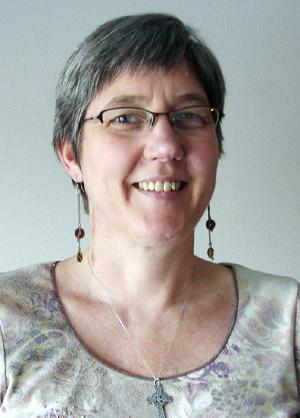
By Celine Klosterman
IOWA CITY — The Diocesan Pastoral Council discussed March 14 how parishes can embrace initiatives suggested by the Davenport Diocese’s Visioning Committee, touched on parish hospitality and heard briefly about the Diocesan Planning Commission’s future visits with parish leaders.
During its meeting at St. Patrick Church, the advisory council of lay people, clergy and religious suggested ways parishes and the diocese could address five of 12 initiatives a Visioning Committee report said Catholics will undertake.
Following are the initiatives the council discussed, with members’ suggestions:
• Promote deeper understanding, appreciation and collaboration between various cultures and faith traditions.
Belong to local groups that bridge communities, such as Churches United of the Quad Cities Area. Invite people from other communities to your parish. Offer bilingual liturgies and food fairs that highlight other cultures’ offerings. Offer a parish mentor to a foreign-language family. Promote bilingualism among priests. Encourage pastors to support ecumenical events.
• Establish a diocesan pool of subject matter experts, utilizing clergy and lay expertise, and develop a resource directory of subject matter experts (SMEs) in various areas of parish and diocesan ministry.
Survey parishioners about their potential areas of expertise. List resources online. As Catholics register with a parish, ask what skills they have.
• Communicate more clearly what support and direction diocesan offices are able to provide for parishes.
Publish an easy-to-find list on the diocese’s Web site, www.davenportdiocese.org, or in The Catholic Messenger. Offer more regional training. During parish ministry fairs, organize a table publicizing diocesan resources.
• Break down parochialism as we search for collaborative ways to gain efficiencies between parishes and other entities of the diocese, including those of personnel, policies, programs and liturgies.
Build personal relationships between people from different communities. Publicize models of collaboration. If launching a new parish program, consider collaborating with nearby parishes that may already offer a similar program.
• Practice appropriate levels of accountability and openness in the conduct and reporting of meetings and of finance in all entities throughout the diocese.
Post parish council meeting minutes online or in the parish bulletin. Publicize parishioners’ right to see parish financial records. When summary of the diocese’s annual audit appears in The Catholic Messenger, offer editorial content explaining the audit.
Later in the meeting, Marie Ware noted the Diocesan Planning Commission will start meeting with parish leaders this fall to explain the planning process and discuss projections of decreased priest availability. Ware is vice chair of the Diocesan Pastoral Council and co-chair of the commission, an advisory group working to plan for the diocese’s future through 2020.
Also this fall, each parish will meet separately to create a report on what parishes it is most likely to collaborate with and establish two representatives for a local-area planning committee. “It’s critical that every parish be involved in the planning process,” Ware said.
Toward the end of the Diocesan Pastoral Council’s meeting, Bishop Martin Amos and Ruth Skeens, council chair, discussed hospitality in parishes. Bishop Amos said he’s found it interesting how parishes differ in their approaches. People in many parishes have greeted him warmly and enthusiastically, but while he was visiting one church for confirmation, a group of youths and adults ignored him as they passed by.
He said he doesn’t want parishes to offer “artificial” welcoming, but observed that even Walmart has greeters.
Skeens encouraged each council member to ask five Catholics in his or her parish for their take on the parish’s strengths and weaknesses in hospitality. Members will report back at the council’s fall meeting.








